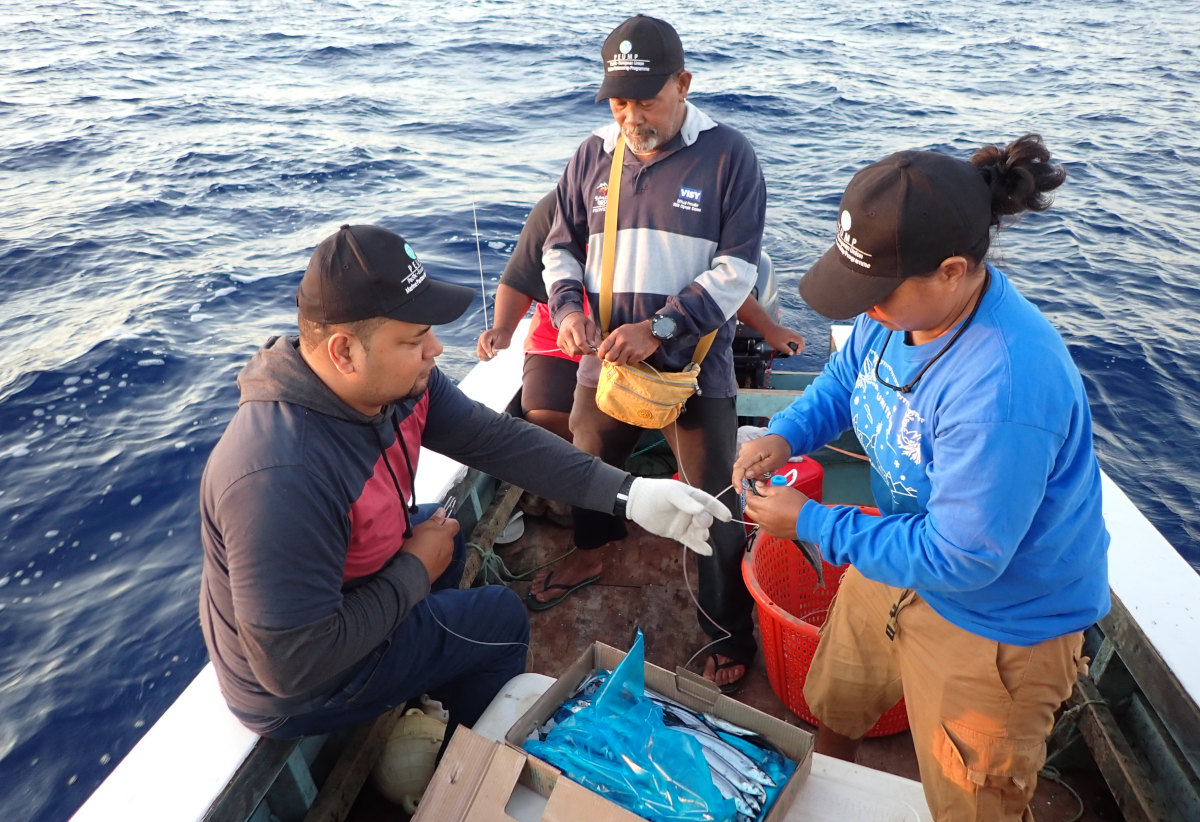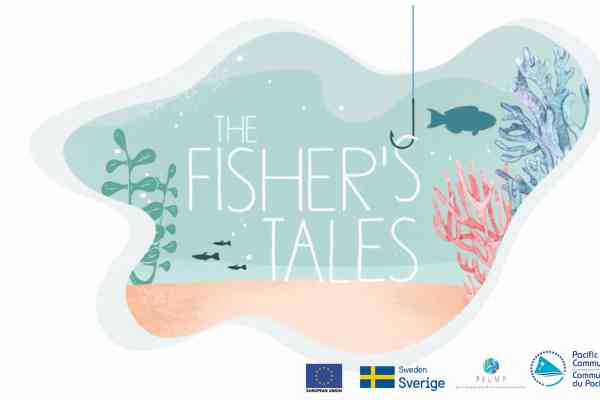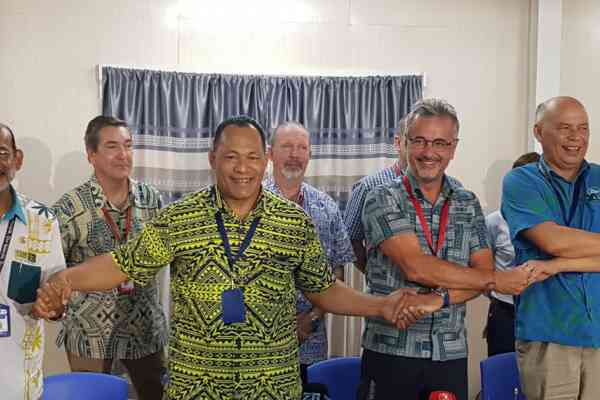(disponible en anglais uniquement)
Pacific-European Union Marine Partnership providing communities with training on alternative fishing practices
The Pacific-European Union Marine Partnership (PEUMP) programme is working to improve the sustainable management of fisheries resources and ecosystems through support, mentoring and empowerment at the community level.
Last week, the PEUMP programme conducted training on Small-Scale Fishing Operations with 11 community representatives (10 male and one female) of the Tonga Special Management Areas (SMAs) and nine (five male and four female) Fisheries extension officers of the Tonga Ministry of Fisheries.
The PEUMP training is supporting community fishers to develop alternative fishing practices that target non-reef fish and assisting them in implementing management rules in their coastal community management plans which lead to restriction of their catches. The training is also supporting a key recommendation of the PEUMP National SMAs lessons-learned workshop, held in May 2019. This workshop developed and strengthened alternative livelihoods and income generation through capacity building for SMA communities on alternative fishing practises to help reduce pressure on coastal resources.
The inclusion of Fisheries extension officers in the training will help build their capacity as Small-Scale Fishing Operations (SFO) trainers, enabling them to conduct similar training with local communities in their respective island groups.
Apart from trolling community fishers’ shares and common fishing methods used in communities such as hand-lining, spearfishing, gleaning, gillnetting and fish trapping, this fishing method heavily targets reef fish and invertebrates, which are already over-exploited.
This week’s PEUMP training is also teaching community fishers and Fisheries extension officers other alternative fishing methods which target non-reef or pelagic species such as Tuna, Mahi-mahi, Wahoo, Swordfish and so forth. These methods, which can be done using regular fishing boats, include vertical long-line, double and single lure trolling, jigging and drop-stone. The community fishers and Fisheries extension officers are being trained on how to construct their gear, when and where to use the methods, how to better maintain their gear after use and the estimated cost of the gear. Participants were also encouraged to improvise using available materials when recommended gear is not locally available.
Sea safety was also part of the training and trainees were taken out for a trial fishing trip after constructing their gear.
The PEUMP programme addresses some of the most serious challenges faced by Pacific countries. Among these are the increasing depletion of coastal fisheries resources; the threats to marine biodiversity, including negative impacts of climate change and disasters; the uneven contribution of oceanic fisheries to national economic development; the need for improved education and training; and the need to mainstream a rights-based approach and to promote greater recognition of gender issues to ensure inclusiveness and positive changes for Pacific island people.

The five-year programme is funded by the European Union (EUR 35 million) and the government of Sweden (EUR 10 million). It is implemented by the Pacific Community (SPC), the Forum Fisheries Agency (FFA), the Secretariat of the Pacific Regional Environment Programme (SPREP) and the University of the South Pacific (USP) in close collaboration with Non-Government Organisations and national authorities.

